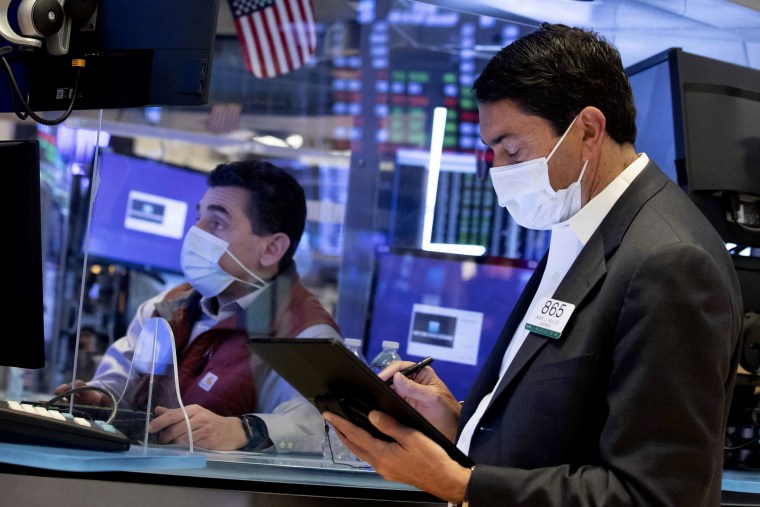Market gyrations over the past couple of days have driven down the shares of a handful of American media conglomerates and Chinese tech firm, a fire sale triggered by one hedge fund’s leveraged trading losses.
The firm in question has been widely reported as Archegos Capital Management, a trading operation hedge fund firm classified as a “family office” and subject to relatively little regulatory scrutiny. The firm is run by Bill Hwang, a boldfaced name in Asian-focused hedge fund circles who earned billions — and who also agreed to pay $44 million to settle an insider trading case in 2012.
The issue with Archegos appeared to be margin calls — demands from its lenders that it lay out more cash (or some similarly liquid asset like Treasuries) to shore up its positions.
“It’s mind-blowing to me, because this was entirely preventable,” said Tyler Gellasch, former SEC counsel and executive director of the nonprofit Healthy Markets Association.
The other category of affected stocks on Monday were those of the banks that lend money to the hedge fund, a list that reads like a who’s-who of investment banks: Goldman Sachs, Morgan Stanley and Deutsche Bank, according to CNBC, as well as Japanese investment bank Nomura and Credit Suisse, which both announced that they expected their quarterly earnings to be impacted by their exposure.
The losses incurred weren’t enough to keep the Dow Jones from closing at another record high on Monday, but investing professionals say the wild gyrations are a warning sign that risk and volatility often go hand in hand. “The thing that comes up every few years is too much leverage,” said George Cipolloni, portfolio manager at Penn Mutual Asset Management. “As a manager of a public mutual fund it’s frustrating, because we’re so regulated, to see the hedge fund people get away with this over and over again,” he said.
Cipolloni speculated that the catalyst was Viacom’s announcement of plans to sell $3 billion worth of stock, news that sent the stock down. An investor using a large amount of borrowed funds betting on the stock to rise instead would be forced to provide its lenders with more collateral if their bet turned out wrong. “If you’re losing in one security, you have to get cash from somewhere,” he said. “It really can create this cascading effect of multiple securities that you have to sell.”
Cipolloni said a system that lets hedge funds essentially place bets with other people’s money encourages excessive risk-taking. “It’s not a healthy environment from a market standpoint to have that level of excess leverage in the system. You lose that sense of moral hazard,” he said.
Jamie Cox, managing partner for Harris Financial Group, pointed out that the type of derivative trading in which Archegos was most likely engaging could have permitted the company to take large positions while holding little — or even none — of the underlying stocks.
“You can own the right to buy or sell it without having to actually own the stock itself, and that's what gives you the ability to amp up the leverage. In the short run, when the leverage gets beyond a certain point then the brokers — especially if they borrowed money — forces them to sell,” he said. “What probably happened is someone figured [it] out… and the rush to the exit began.”
Financial regulations implemented in the wake of the financial crisis of 2008 exempted “family office” operations from much of the reporting and transparency requirements, based on the rationale that since traders would be using their own funds, ordinary investor protection concerns wouldn’t be an issue.
The reverberation of its trouble throughout the broader banking sector should serve as a warning that this classification is a loophole regulators should look at more closely, some market professionals said. “I think there is sort of a blind spot right now in the family offices and some of these hedge funds,” said Sam Weller, director of capital markets at Bryn Mawr Trust. “There’s not as much oversight in terms of transparency and position reporting.”
The opaque nature of much of that dealmaking can obscure the risk banks lending to these players face, Weller said. That reality — and the tumult of the last few days — could prompt regulators to take a harder look, he predicted. “If I were responsible for regulating family offices, this event would be concerning to me, and the fact that major market makers are exposed,” he said. “I think this is certainly an invitation for regulators to take a look at how effective their regulatory regimes are.”
Without those regulatory guardrails, bull markets can make investors forgetful. “It works really well on the upside,” Cipolloni said. “In the interim, these people are making a heck of a lot of money.”
